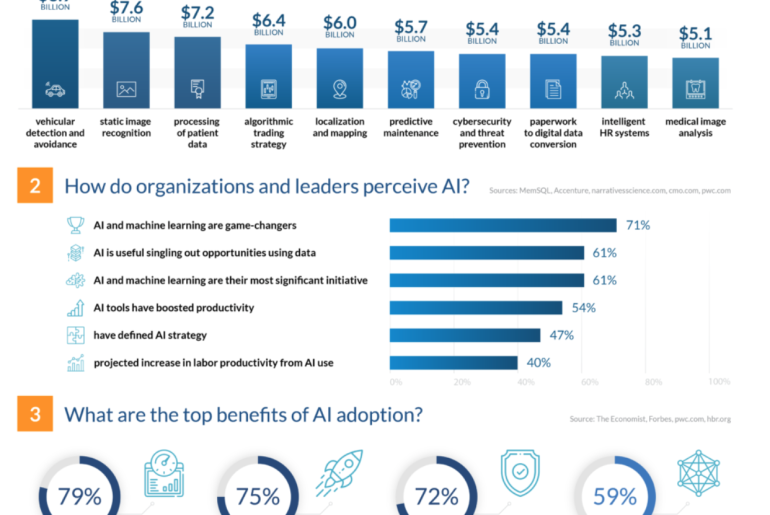Most of your day is probably spent on your phone. From sending emails to watching videos, from searching for work to reading the news, it’s almost impossible not to spend time on one of the most important pieces of technology in our world.
That’s why it was only a matter of time before artificial intelligence came knocking on that door. Though sometimes, as with any new technology, all the possibilities, and potential greatness can be somewhat overwhelming.
What is artificial intelligence?
Think of artificial intelligence as technology that can learn, understand, and make decisions and predictions similar to a human. Artificial intelligence, also known as AI, started as a branch of computer science that was focused on making machines that could do things like play chess or help doctors make diagnoses. But in recent years, the definition of AI has expanded to include technology that can learn and adapt to meet personal needs and improve over time. In other words, even the most basic devices are starting to have something similar to “smarts.”
The most common type of AI is machine learning, which uses algorithms (short programs) to sift through data and spot patterns. For example, if you use a photo app like Google Photos, the search function will get better at finding pictures of your kids over time as it gets more data about your collection.
Artificial intelligence is a broad term – there are many different types of AI. For example, Machine Learning (ML) is a type of AI that uses computers to learn from data without being specifically programmed. It can be used to, for instance, recognize your voice, determine what content you might like, or drive a car.
Why is it important?
The tech industry and the world are relying on artificial intelligence to solve big problems such as cybersecurity, healthcare, climate change, sustainability, education, and traffic congestion. AI is also being used in many new consumer products. It’s everywhere — from Google Home’s voice recognition that lets it understand your requests for information to Amazon’s Alexa offering suggestions for what to watch on TV or Uber recommending you download its app to get home safely.
The term AI is used to describe any software that’s capable of learning and problem-solving like humans, whether it be Siri’s voice recognition or Google DeepMind’s Go victory against the world’s best player. In other words, it’s about software using data and algorithms to perform tasks that usually require human intelligence, such as planning, recognizing speech or images, and even understanding language.
How fast is it growing?
It’s growing very fast. In fact, there’s a shortage of data scientists who have the knowledge and skills to take advantage of all this data and create algorithms. Data scientists are in high demand across industries. According to McKinsey Global Institute, the U.S. alone could face
a shortage of 140,000-190,000 people with deep analytical expertise and 1.5 million managers and analysts with the know-how to use the analysis of big data to make effective decisions by 2018.
How will Artificial Intelligence shape our future?
AI can make us more connected, efficient, and productive. It’s an area of research that’s growing really fast and promises to have a huge impact on our lives in both the private and public sectors. But what can you do to get ahead? Here are five ways artificial intelligence will radically change your life:
1. How AI could make your phone smarter
Ever wonder if that feature you installed works as well as it says it does? Could it make your phone smarter? Try Cortana, Alexa, or Google Now. All these applications use AI to recognize people, places, and things so that they can figure out what you might want.
You might even soon be able to ask your phone to do something for you. For instance, Siri can look up a restaurant menu and suggest the nearest one and Google Now can tell you which flights are available at the best time.
2. Where things will go when driverless cars take over our roads
In order for AI to be more useful, it must operate in places other than laboratories and computers, so it’ll have to find its way into our cars.
There are many different types of AI systems being developed that could help drivers be safer, more efficient, and more productive at the same time — from the self-parking car shown in this video to driver-assist cars that can detect when their eyes are closed.
3. How AI can help us solve big climate change problems
In order to reduce carbon emissions, we’ll need technology that can monitor air quality, pollution, and the amount of water in our aquifers and rivers – three areas that are very difficult for humans to monitor.
That’s why AI is no longer in the realm of science fiction, but rather in the science lab working with databases and algorithms to track down information about water reserves around the world.
4. How AI will help us be more productive at work, take on more tasks at home and reduce stress
Researchers are already working to create systems that can recognize when you’re tired or need a break, automatically adjust your energy level and even take over some of your tasks if they know that you’d be less productive if they were completed by a machine.
5. How AI could help us reinvent ourselves
In the next few years, artificial intelligence algorithms will offer us more ways to learn and understand new things. So what’s next? Who knows — maybe one day we’ll be able to teach machines how to learn so that they can help us become smarter and more creative at the same time. Who knows?




